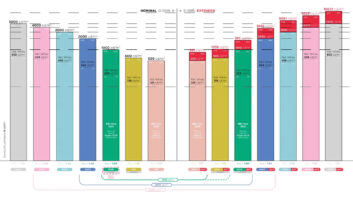The European Broadcasting Union has expressed “deep disappointment” at the vote in the European Parliament’s JURI committee on the Copyright Directive.
The Directive would require the creative industry to automatically report to all authors and performers on the use of the works they contributed to. The EBU said this will place “unprecedented burden on the creative industries, at a time when they are already facing significant market disruption.”
The EBU said that Parliament has failed to strike a reasonable balance between providing transparency and information to authors and performers while, at the same time, ensuring the workability and pragmatism to do so.
EBU head of European affairs, Nicola Frank, said: “The EBU and its Members support the principles of transparency and fair remuneration, which are key to the stability of the audiovisual sector. However, these principles must be reflected in European law in a realistic and practical manner.”
“Broadcasters can be managing over 250,000 contracts every year with individual rightsholders. The huge administrative burdens that the new Directive will place on the audiovisual sector will force broadcasters to divert money from new investments in content to address this costly and time-consuming obligation.”
“This is an extremely detrimental result for European audiences. Ultimately, it undermines the unique role that public service media play in our societies by investing in original, independent and diverse content every year. The capacity of our Members to continue to invest over €17.5 billion in better content every year is seriously under threat.”
The EBU said it is particularly concerned by the introduction of a new right of revocation, enabling one actor to block a programme from being shown again. “This is clearly disproportionate and might be detrimental to the interests of other authors and performers involved in the programme as they would forgo potential revenues,” it said.
The new article establishing a principle of fair and proportionate remuneration is also extremely concerning. This provision creates a new obligation for contracts to specify the remuneration attached to each mode of exploitation but “this is not practical nor realistic”, said Frank.







